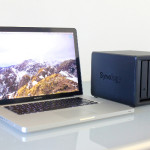Should You Install Indoor Security Cameras?
Security cameras offer home and business owners peace of mind by allowing vigilance over properties. As a homeowner, installing an indoor security camera can help you check in on pets or simply watch over your home while you’re away. Although these benefits are appealing, there are a few things to consider before deciding on installing indoor security cameras.
Worries
It’s true that security cameras are meant to put your worries at ease, but at the same time, they can feed your anxiety. Because you can check in on things at any time, you may find yourself obsessively monitoring your feed.
To minimize this, set up a camera with motion detection so that it may alert you when there is activity. If you have pets, you can filter out their activity so that you are not inundated with false alarms.
Hackers
With internet-connected security cameras, you run the risk of hackers gaining access to your camera. This type of attack is much more common with cameras that have little to no built-in security. Luckily, there are ways to combat these risks. First, you should invest in well-know, higher quality security cameras that have better built-in security. Once you have chosen a camera, change any default logins and use strong, hard-to guess passwords. Also, be sure that your home Wi-Fi network is also highly protected.
Pets
As previously mentioned, indoor security cameras provide an easy way to keep an eye on your pets when you’re away. But when it comes to motion detection, they can easily trigger false alarms. Once you adjust your settings to accommodate pet activity, the security camera can be a great help. Whether you’re missing your pet while you’re away or if you’re working at home, security cameras allow you to see what they are up to.
Valuables
Of course, security cameras are meant to keep you safe from burglars. Their presence alone can help to deter criminal behavior. But in the case that it does not, it can provide useful footage that can be submitted as evidence.
Do you have security cameras installed at your home or business? How have they helped? Share your experiences with us on Facebook, Twitter, LinkedIn, and Pinterest.
For a great selection of quality IP and HD security cameras for your home or business, please visit SecurityCamExpert.com or call 888-203-6294 today!
The Advantages & Disadvantages Of Nanny Cams
Nanny cams can give parents peace of mind when they’re away from home. They can be hidden or installed in plain sight to monitor the nanny and children’s activities and behaviors. While some see as it as helpful, others may see it as an invasion of privacy or an uncomfortable situation.
Of course, there are rules and regulations in place to combat these issues. Recording a video of anything that happens in your home is legal, however, you must have a legitimate reason for doing it. Monitoring your baby or caregiver falls into that category, but regardless of whether the surveillance camera is hidden or not, they must be located in public areas of the house such as the kitchen or living room. Video recording in areas where there is an expectation of privacy (such as the bathroom or your bedroom) is not permitted.
When it comes to audio recording, you must inform and get the consent of the person being recorded. Because of this, often times nanny cams do not record audio. If you do record a video with audio that has evidence of abuse, the footage would be inadmissible in court and you could be liable for breaking privacy laws.
With that said, if used appropriately and within legal limitations, nanny cams can be a useful tool for parents. If you are considering installing a nanny cam, here are some of the pros and cons.
Pros
- Peace Of Mind
Especially with new parents, it can be hard leaving your children in someone else’s care. With a nanny cam, you can ease your worries by checking in on your children to see that they are safe. - Nanny Behavior
If your children are young, they may not be able to tell you what is happening while you’re away. You can’t always rely on feedback from friends and neighbors who may see your children and nanny together at the park or school. The nanny cam allows you to monitor behavior and address any issues accordingly. - Connection
For parents who feel guilty for going back to work and missing quality time with their children, nanny cams can enable them to feel more of a connection as they can periodically check in and see what their kids are up to.
Cons
- Trust
Aside from privacy issues, the person being recorded may feel violated or offended if they find a hidden camera. To combat this issue, it’s best if you are upfront and honest about your plans to install a nanny cam. Most nannies are comfortable working in the presence of a nanny cam. - Misuse
Your nanny cam should be used to deter or prevent potential neglect or abuse, not used to capture it. Communicate your expectations and take action if you feel something isn’t right. - Legalities
As mentioned, you must abide by the law. Look into your state’s laws regarding privacy and recording and be sure that your nanny cams and surveillance system are in compliance.
How have nanny cams helped you as a parent? Share with us on Facebook, Twitter, LinkedIn, and Pinterest.
Need help choosing the right nanny cam or surveillance system for you? Contact us at 888-203-6294 and we will be happy to discuss your options. You may also browse our stock of IP security cameras and other surveillance equipment online at SecurityCamExpert.com.
Local Storage Options For Your Security System
There are plenty of aspects to consider when it comes to investing and installing a new security camera system. The goal is to deter any theft or crimes while capturing the necessary footage should an incident occur. With that said, aside from the security cameras you choose, your surveillance storage solution should be of high quality and capacity and tailored to your storage needs.
Storing your video footage locally makes it easier to access, and is usually easier to use. In addition, local storage options are much more cost-effective than other storage solutions. In terms of local storage, there are two main options: internal or external. Internal storage is saved within the camera whereas external storage is saved to a hard drive, usually located within a computer or CCTV DVR/NVR. Each option poses their respective advantages and disadvantages.
Internal Camera Storage
When you store your video footage internally, it is usually via a microSD chip within the camera. This option is ideal for those who don’t want to rely on internet access or wiring, as this can slow down your internet. In addition, since internal storage bypasses any transferring to external storage, video footage is nearly immediately available.
The biggest downside of internal storage is its limited storage capacity. In an effort to combat this, most security cameras using local storage only record when motion is detected. And these cameras are more vulnerable because the footage is stored internally, thus, if the camera is stolen, so is any video evidence that could be used to prosecute the thieves.
External Camera Storage
If you need to record footage throughout the day, external storage is a great option as you can store large amounts of video at a relatively low cost (especially compared to online storage.
Wired Camera Storage
Wired solutions will save your network a load of work and will be faster when watching live feed (minimal lag time). Typically, you will have some type of hub that encodes the recording, and then the wire will route to either a DVR (digital video recorder) or a personal computer with lots of storage space. If you plan on editing the video, personal computers are more convenient.
Unfortunately, wired security cameras are susceptible to severed wires. If you opt for a wired camera, you will want to embed the wire through the wall and make sure that your camera is securely mounted.
Wireless Camera Storage
If you opt for wireless cameras, you are choosing a very secure solution. These are also the easiest to install as you usually just plug it in, connect to a network and install software. Your video would be routed to either a personal computer or an NVR (network video recorder).
Unfortunately, wireless cameras are not ideal for smaller home wireless networks. They can slow down the internet and may be susceptible to delays in your video feed. Should you choose wireless solutions, just be sure that your network can handle the load.
While there is not a universal best storage solution, there are solutions that are better suited for you than others. Take the time to evaluate your needs to determine which storage solution would work best for you.
If you need help determining which video surveillance solution to choose, contact us at 888-203-6294 or browse our inventory online at SecurityCamExpert.com. You can also connect with us on Facebook, Google+, Twitter, LinkedIn, and Pinterest.


